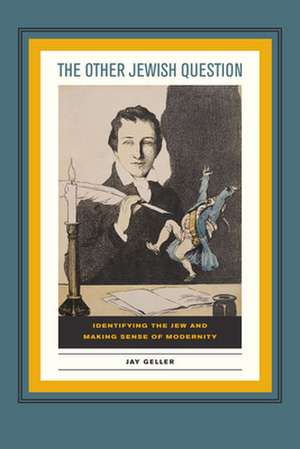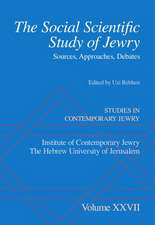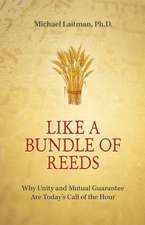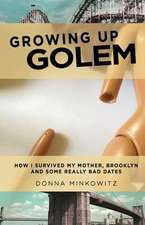The Other Jewish Question – Identifying the Jew and Making Sense of Modernity
Autor Jay Gelleren Limba Engleză Paperback – 31 aug 2011
| Toate formatele și edițiile | Preț | Express |
|---|---|---|
| Paperback (1) | 383.66 lei 43-57 zile | |
| Wiley – 31 aug 2011 | 383.66 lei 43-57 zile | |
| Hardback (1) | 683.71 lei 43-57 zile | |
| Wiley – 31 aug 2011 | 683.71 lei 43-57 zile |
Preț: 383.66 lei
Nou
Puncte Express: 575
Preț estimativ în valută:
73.41€ • 76.85$ • 60.74£
73.41€ • 76.85$ • 60.74£
Carte tipărită la comandă
Livrare economică 07-21 aprilie
Preluare comenzi: 021 569.72.76
Specificații
ISBN-13: 9780823233625
ISBN-10: 0823233626
Pagini: 530
Dimensiuni: 154 x 227 x 30 mm
Greutate: 0.66 kg
Editura: Wiley
ISBN-10: 0823233626
Pagini: 530
Dimensiuni: 154 x 227 x 30 mm
Greutate: 0.66 kg
Editura: Wiley
Recenzii
"A fascinating book about Jewish embodiment and the complex relationship between the Jewish body and German-Jewish modernity."--Todd Presner, University of California, Los Angeles"Jay Geller refers to Sander Gilman's early studies on the Jewish body, considers psychoanalytic theory as well as Jacques Derrida's attention to the text, and finds a voice that is very much his own. His The Other Jewish Question is nothing less than a tour de force--a review of German literary and philosophical texts from the early nineteenth (Rahel Varnhagen's letters) to the early twentieth century (Walter Benjamin's essays) that give evidence of the central importance of the figure of the Jew for the conception of what we now call 'modernity'."-Liliane Weissberg, University of Pennsylvania"In this elegantly crafted and stunningly erudite exposition, Jay Geller explores the 'persistence' of the Jew as marked by difference, at least in the imagination of others, is to be understood as an index of the tortured emergence of Western modernity."-Paul Mendes-Flohr, The University of Chicago, Divinity School
Notă biografică
Jay Geller is Associate Professor of Modern Jewish Culture in the Divinity School at Vanderbilt University. His On Freud's Jewish Body: Mitigating Circumcisions was published by Fordham.














